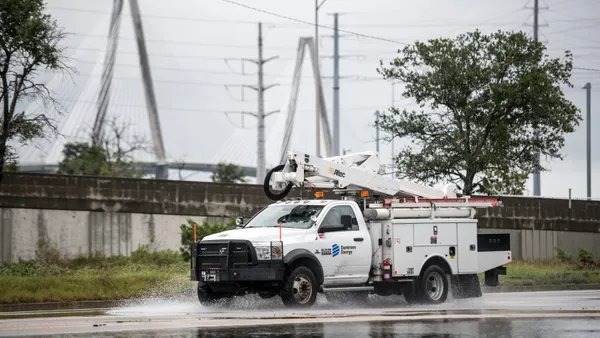Dive Brief:
- A Republican lawmaker in the Ohio House of Representatives is preparing to introduce a bill that would eliminate the state's renewable energy standard, and propose instead a voluntary goal of 12.5% clean energy through 2027, Columbus Business First reports.
- Rep. Bill Seitz, formerly a state senator, will introduce legislation allowing all customers to opt out of the renewable goals, including a small charge on monthly residential bills and allows a broader definition of energy efficiency measures for utilities and reducing efficiency goals.
- The bill would restart debate over renewable standards in Ohio: The standards were frozen in 2014, but Gov. John Kasich (R) vetoed a bill that would have essentially extended the freeze last year by keeping those standards voluntary until 2019.
Dive Insight:
If Kasich has already vetoed a bill to put renewable standards on ice, why does Seitz think an even more dramatic bill can get through? He told the Columbus Business Journal that some Republicans voted against freezing the standards because last year's attempt did not go far enough.
"What we are now saying is we are going to scrap the renewable portfolio mandates in their entirety and repeal them with goals,” Seitz told the Ohio Energy Management Conference this week, according to the news outlet.
In 2014, Ohio lawmakers halted renewable standards at 2.5% until 2017. Prior to that, utilities in the state needed to source 25% of their power mix from alternative energy sources by 2027, including nuclear power, with half of that amount from renewable energy. Last year, however, lawmakers drafted a bill to that would have kept those standards voluntary until 2019, essentially extending the freeze, but Kasich vetoed it.
Republican leaders argued that keeping the standards voluntary would give the state time to adjust to energy policy changes. But clean energy advocates said stifling any progress on energy conservation and renewable energy could send jobs across state lines.
The fight over Ohio's renewable standard is not over, and may have never ended: lawmakers followed Kasich's veto last year with additional sessions to consider an override, CBF reported in December.













